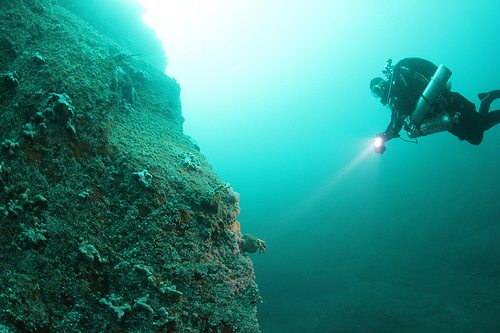

Environment
Climate change will bring ‘staggering’ deep-sea ecosystem changes
Not even the mysterious creatures that dwell in the furthest depths of the world’s oceans will be immune to rising global temperatures, a new study has found.
An analysis undertaken by an international team of scientists – the first to calculate the impact of climate change on deep-sea ecosystems – predicts that global populations of seafloor-dwelling organisms will decline by over 5% over the next century.
Shockingly, the researchers say that the collective weight of all the creatures lost – from sponges to squid and lobsters and crabs – will be greater than the combined weight of every person on Earth. The devastation will be particularly pronounced in the North Atlantic, where 38% of deep-sea dwellers may be lost.
“We were expecting some negative changes around the world, but the extent of changes, particularly in the North Atlantic, were staggering”, said Dr Daniel Jones, lead author of the study.
This will be a result of climate change caused biodiversity loss elsewhere in the ocean, as the numbers of plants and animals living nearer the surface – which provide a key source of food for deep-sea communities when they die and sink into the depths – decline.
More than 80% of key habitats, such as cold-water coral reefs, seamounts and canyons, are projected to suffer losses in total biomass as a result.
The study also predicts that these changes will hit larger organisms particularly hard, meaning deep-sea species are likely to become smaller. Such changes could endanger fishing, as the overall food supply from the oceans declines.
Further reading:
Plastic from skin scrubs contributes to marine pollution
Scottish marine life under threat, says WWF
Oceans acidifying at ‘unprecedented rates’ because of manmade CO2
Climate change will affect people who rely on the oceans
Declining health of oceans of ‘gravest concern’ to life on Earth


 Environment10 months ago
Environment10 months agoAre Polymer Banknotes: an Eco-Friendly Trend or a Groundswell?

 Environment12 months ago
Environment12 months agoEco-Friendly Home Improvements: Top 7 Upgrades for 2025

 Features9 months ago
Features9 months agoEco-Friendly Cryptocurrencies: Sustainable Investment Choices

 Features11 months ago
Features11 months agoEco-Friendly Crypto Traders Must Find the Right Exchange




























